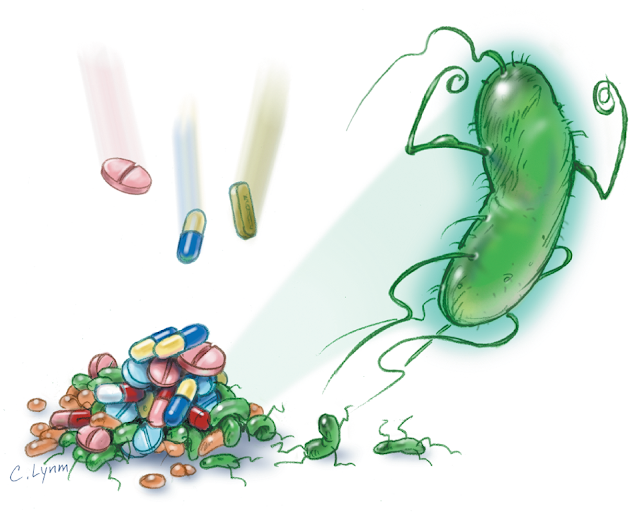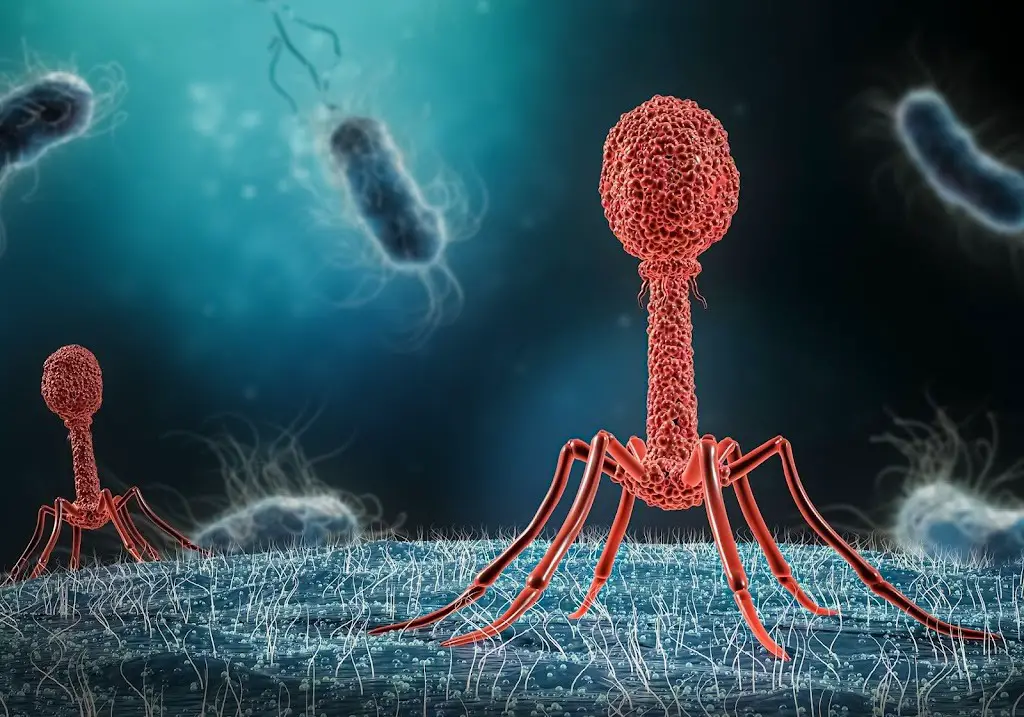Bacteria are microorganisms that are present everywhere on Earth. They are essential for the proper functioning of many ecosystems and are used in a variety of industries, such as food production and wastewater treatment. However, some types of bacteria can cause disease in humans, animals, and plants. Infectious diseases caused by bacteria are a major global health problem. In recent years, the problem of drug-resistant bacteria has become increasingly prevalent. This is because the use of antibiotics to treat bacterial infections has led to the evolution of antibiotic-resistant strains of bacteria. In recent years phages have been sought as being the potential alternative to antibiotics in treating superbugs.
Bacteriophages (or phages) are viruses that infect and kill bacteria. Phages are found in nearly every environment on Earth where bacteria exist and are thought to be the most abundant biological entities on the planet. Phages are highly specific and only infect a certain type of bacteria. This specificity makes phages an attractive option for treating bacterial infections, as they can be targeted to kill the specific bacteria causing the infection while leaving the rest of the body’s bacteria untouched. Nowadays, phages are being studied as a potential solution to the growing problem of drug-resistant bacteria. As more and more bacteria become resistant to antibiotics, we need to find new ways to treat bacterial infections. Phages could be the answer. Phage therapy is already being used in some parts of the world, and it is showing promise as a treatment for drug-resistance bacterial infection. The rise of antibiotic-resistant bacteria is a serious global health problem. Phage therapy offers a promising alternative to traditional antibiotics, with the potential to save countless lives.
How do bacteriophages work?
Being the most abundant organisms on Earth phages play an important role in the natural balance of bacteria. When a phage infects a bacterium, it can kill the bacterium and/or hijack its reproductive machinery to create more phages. Phages are essential for keeping bacterial populations in check and for preventing the spread of bacterial diseases. To initiate infection, they attach to the surfaces of bacteria and inject their genetic material into the bacterial cells. Once inside the cells, the phage genes take over the bacterial cells and cause them to produce new phages. These new phages then lyse, or break open, the bacterial cells and are released into the environment to infect other bacteria.
Note: Not all bacteriophages lyse cells; some, such as filamentous bacteriophages, have distinct life cycles in which they use the bacteria’s sex pilli to infect and exit the cell. Find out more about filamentous phages here
Generally, these viruses are classified into two groups based on their mode of infection: lytic phages and temperate phages. Lytic phages immediately begin replicating inside the bacterial cells and cause the cells to lyse. In contrast, temperate phages enter a latent, or inactive, state inside the bacterial cell.
The rise of drug-resistant bacteria
In recent years, there has been a concerning rise in the number of drug-resistant bacteria. These bacteria are able to survive and even thrive in the presence of antibiotics, making them extremely difficult to treat. This is a major problem for public health, as drug-resistant bacteria can quickly spread and cause serious outbreaks.
There are a number of reasons why drug-resistant bacteria are on the rise. One is the overuse of antibiotics, both in humans and livestock. When antibiotics are used too frequently, bacteria can develop resistance to them. Another reason is the poor sanitation conditions in some parts of the world, which provide an ideal environment for bacteria to multiply. The rise of drug-resistant bacteria is a serious global threat. We must take steps to reduce the overuse of antibiotics and improve sanitation conditions to prevent the further spread of these
Bacteriophages to the rescue
As their discovery dated as old as the discovery of antibiotics, they have been used for medical purposes for centuries back. Their popularity didn’t spread to all parts of the globe due to the effectiveness of antibiotics. The antibiotic’s broad range and scalability are some of the benefits that outcompete and caused the phage therapy technology to fade in many parts of the globe. Bacteriophages play an essential role in the ecology of bacteria, and they have also been used for medical purposes, such as treating bacterial infections, especially in former soviet countries.
Bacteriophages are currently being studied and used under special circumstances as a potential treatment for antibiotic-resistant bacteria in many countries. Antibiotic-resistant bacteria are becoming more common, and they can cause serious infections that are difficult to treat with antibiotics. Bacteriophages may offer a way to treat these infections without the use of antibiotics and sometimes are used to complement one another.
In addition, bacteriophages can help prevent the spread of antibiotic-resistant bacteria. When bacteriophages infect a bacterium, they kill it. This prevents the bacterium from infecting and multiplying
Are bacteriophages safe?
Bacteriophages are viruses that kill bacteria. They have been used for years to treat bacterial infections and are generally considered to be safe. However, there is some concern that bacteriophages may contribute to the development of antibiotic resistance. So far, there is no concrete evidence that bacteriophages cause any side effects in the human or animal body. However, more research is needed to fully understand the potential risks and benefits of using bacteriophages.
The future of bacteriophages
Phages have been used for medical purposes for over a century and are currently being developed as potential treatments for antibiotic-resistant bacterial infections. Phage therapy is an attractive alternative to traditional antibiotic therapy because phages are specific to their bacterial hosts and do not cause collateral damage to other organisms. Additionally, phages can be rapidly produced and tailored to target specific bacterial strains.
More phage-based products are being developed, including some for the treatment of non-communicable diseases such as cancer. Phage-based recombinant DNA vectors such as phagemids are also widely used in the genetic engineering field. Some phage-based products, such as lysins, are also being studied for their antibiotic potential.



